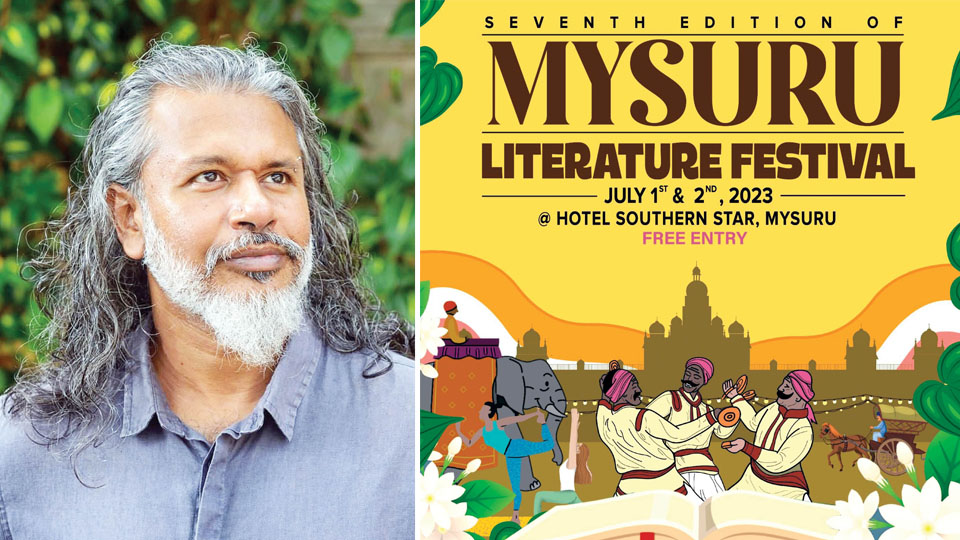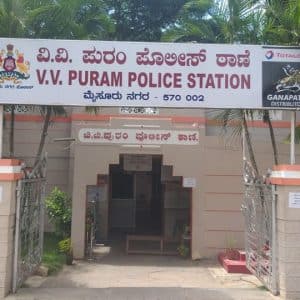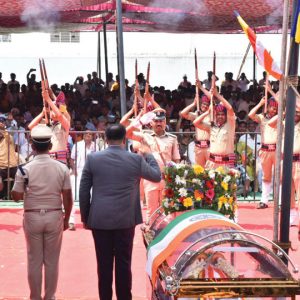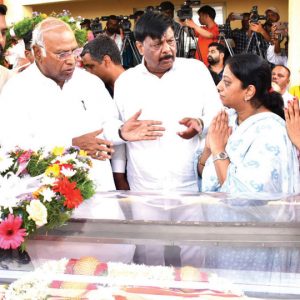Sri Lankan author Shehan Karunatilaka made his mark on the international literary scene with his first novel ‘Chinaman: The Legend of Pradeep Mathew’ way back in 2011, winning the DSC Prize, the Commonwealth Writers’ Prize and a host of other accolades. Last year he won the Booker Prize for ‘The Seven Moons of Maali Almeida,’ a political satire wrapped in a murder mystery.
Star of Mysore caught up with him for a quick chat ahead of his travel to India to attend the seventh edition of the Mysuru Literature Festival, which will bring together a stellar cast of speakers and panellists from the world of arts and culture. The Mysuru Literature Festival, organised by Mysuru Literary Forum Charitable Trust and Mysuru Book Clubs-2015, will take place at Hotel Southern Star in city on July 1 and 2.—Ed
By Dipti Kotian
Star of Mysore (SOM): What is the premise of your Booker Prize winning novel ‘The Seven Moons of Maali Almeida’?
Shehan Karunatilaka: It tells the story of a dead war photographer who finds himself in the afterlife where he has seven days to solve his own murder, make peace with loved ones and alert the world to his cache of hidden photographs.
SOM: Your first book ‘Chinaman: The Legend of Pradeep Mathew’ was published in 2010. Why the long gap between books?
Shehan Karunatilaka: I hadn’t really thought of a second novel and it took a while to find the story that would occupy me for the next decade. Meanwhile, we had two kids! The book took multiple revisions before it was ready for an audience. I had to rewrite it many times before it made sense to me!
SOM: How disciplined is your writing routine? Do you set yourself a daily target?
Shehan Karunatilaka: No targets. But if I can sit every day for about four hours and stay focused, that’s a good day. If I get a few good paragraphs a day, it’s time well spent.
SOM: Did you always want to be a writer? Was your career choice to work in advertising influenced by the desire to write?
Shehan Karunatilaka: I always wanted a career where I didn’t have to wear a tie. Now, unlike most people, I get to work in my pyjamas. I took whatever jobs I needed to survive and yes, advertising was one of them. But when stuck in office cubicles, I often fantasized over a career where I get to read books, watch movies, and listen to music all day long. I’m lucky to finally have my wish.
SOM: The characters in ‘The Seven Moons of Maali Almeida’ speak using phrases and authentic expressions that are distinctively Sri Lankan. How much did South Asian writers like Salman Rushdie and others influence you in this regard?
Shehan Karunatilaka: I try and write as authentically as I can, capturing the sound and speech of the narrators and characters. When revising I do try and make it easier for an uninitiated reader to glean meaning from the context. But you cannot think of international readers when you are writing a Sri Lankan novel, at least I don’t. And yes, writers like Salman Rushdie, Carl Muller, Mohammed Hanif, Arundhati Roy and Chilean novelist Roberto Bolano showed me how it was done.
SOM: Right at the start of the story we find that Maali Almeida, the central protagonist, is dead and we meet him in the afterlife. Many of the primary characters are ghosts, demons and rakshasas. What inspired you to set your story in this alternate reality of the spirit world?
Shehan Karunatilaka: The idea of ‘What if Sri Lanka’s dead could speak?’ is what began this project. Once I had found enough ghosts to chat to, I constructed an afterlife made up of eastern and western folklore and common supernatural tropes. We’re all fascinated by what comes after, even though we all suspect that it may actually be nothing.
SOM: Any reason you chose a particularly volatile and violent period in Sri Lanka’s political history, not from its most recent past but from the 80s?
Shehan Karunatilaka: The distant past is safer to write about than the recent past. But I lived through that period and believe it should be written about, discussed, understood and never repeated.
SOM: How far do formal creative writing programmes help budding writers?
Shehan Karunatilaka: All forms of learning are good. I didn’t attend any writing courses, but I educated myself by following the reading lists. The internet has enough masterclasses and gurus on any aspect of the craft you wish to learn. Writing can’t be taught, but it can be learned. At least until the robots replace us.








Recent Comments